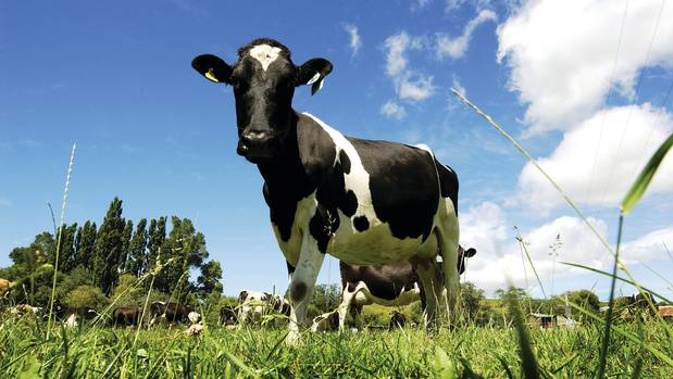
Experts have hailed New Zealand's ambitious new Zero Carbon Bill - but some question whether all types of greenhouse gas emissions should be slashed to nothing by 2050.
Climate Change Minister James Shaw yesterday shared more information about the proposed bill, which Kiwis are being urged to have their say on.
The three big options on the table are making the 2050 target apply only to carbon dioxide, ramping down CO2 but stabilising short-lived gases like methane or nitrous oxide, or requiring that all emissions were reduced to net zero by the middle of the century.
All of the options would have big implications for households, whose incomes would likely not grow as quickly, and for industries, which faced having to transform and innovate to meet ambitious new requirements.
But Shaw said economic modelling showed New Zealand could reduce emissions at the same time as growing the economy, jobs, and per-household incomes.
By 2050, the "per household national income" could still increase by 40 per cent, although lower-income households could be disproportionately affected as they spent more on products and services that would become more expensive.
"We are mindful that some of the modelling shows there could be a disproportionate impact on lower income households, unless there are strong and effective policies in place to avoid these costs," Shaw said.
"The Government is ready to support those households to raise their incomes and quality of life; as we showed with our Families Package and Winter Energy Payment."
The analysis also showed how taking action on climate change was likely to have other benefits like better health, water quality, reduced traffic congestion, and more innovative businesses.
"More innovation across our economy is a key part of the long term fix, but planting the right mix of native and exotic trees is also one of the easiest, quickest, and most cost-effective things we can do to help achieve our climate change goals," Shaw said.
"The Government's billion trees programme is a critical part of off-setting emissions over the next decade, and the economic modelling suggests we will need to keep planting after that."
The director of Massey University's Centre for Energy Research, Professor Ralph Sims, said planting more forests on to marginal pasture land would buy some time to phase out coal, oil and gas - but could only be a temporary option.
Sims believed nitrous oxide, arising mainly from nitrogen fertilisers and animal urine, was a long-lived gas and would have to be reduced, but could still be given a lower priority because of its comparably smaller contribution to global warming.
How methane emissions from livestock and other sources should be treated was "more debatable", he said.
Choosing to stabilise methane levels rather than reducing them to zero would take pressure off the farming sector, at a time when research to date had yielded only small opportunities to cut levels.
But the same gas entered the atmosphere from sources such as coal mines, natural gas fields and pipelines, which NASA recently confirmed were the main culprits behind mysterious methane increases in the atmosphere over the past decade.
Sims explained that, as methane molecules broke down in the atmosphere over a decade or two, it produced the main driver of global climate change - CO2.
If the methane was bio-based, it could be argued that the resulting CO2 was recycled back through the growing pasture or rice plants, but if it was fossil-based methane, then the resulting CO2 was no different from that released from fossil fuel combustion.
"Therefore any mitigation policy that is less stringent on agricultural methane emissions has to consider its impact on fossil methane emissions that cause greater warming," he said.
"In New Zealand, agricultural methane dominates but elsewhere fossil methane does."
Otago University energy expert Associate Professor Ivan Diaz-Rainey said there was no question that agricultural emissions were challenging to tackle, both in terms of measuring them - a major new paper indicated a major rethink was needed on methane accounting - and in mitigating them.
Diaz-Rainey felt the right option likely lay somewhere between stabilising them and cutting them to zero - which meant while they weren't left out, the big focus would be on CO2.
But Massey University's Distinguished Professor Robert McLachlan said there were good reasons for pursuing the boldest, all-gas option - a goal the Productivity Commission recently found could be achieved.
"Cutting methane emissions provide an immediate decrease in temperature; cutting carbon dioxide emissions does not," McLachlan said.
"This may be significant as climate change impacts increase nonlinearly and we approach tipping points.
"Some ways of cutting agricultural and waste emissions are known already we need an incentive to adopt them."
Elsewhere, farming groups back the idea of treating agricultural emissions differently to CO2, while Greenpeace staunchly advocated the all-gases option.
Overall, Sims was heartened to see the Government pushing for bolder climate action, along with National's indication of cross-party support.
Polling results just released by Horizon Research indicated the majority of Kiwis also supported all parties agreeing to a net zero emissions target.
"The aim of Government to have the Zero Carbon Act and Climate Change Commission in place at some time around the end of this year should be supported," Sims said.
"Further leadership from Government through implementing strong policies is now essential and the Zero Carbon Act will hopefully provide this before it becomes too late."
Take your Radio, Podcasts and Music with you









